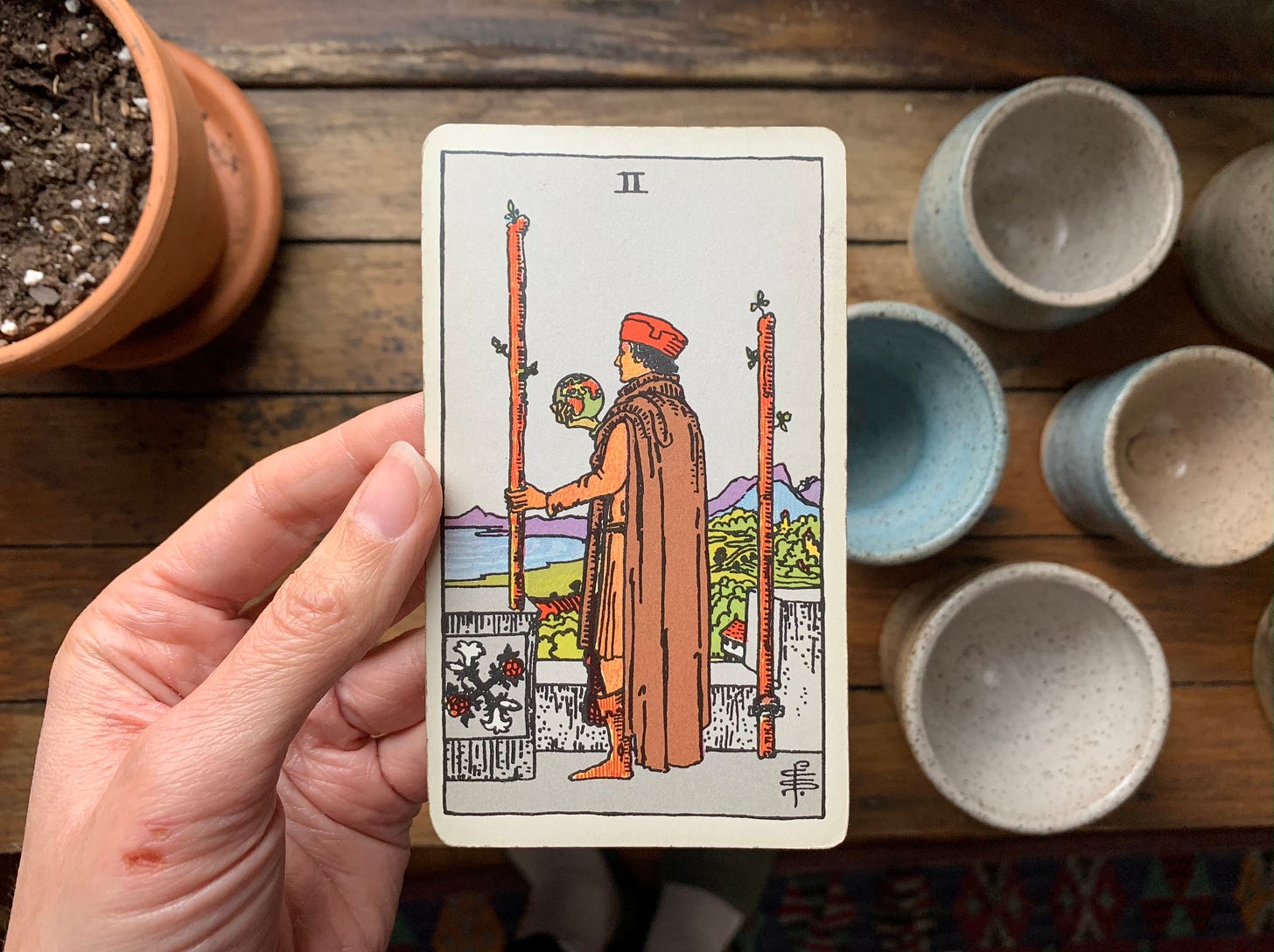Image description: A hand is holding a Tarot card, Pamela Colman Smith’s Two of Wands. On the card there is a person dressed in all brown with a red cap holding a globe and gazing over a coastal vista from the top of a building. There are two wands on either side of them. The card is being held above a wooden surface with a terra cotta potted plant and several ceramics colored white, beige and sky blue.
I tend to feel like I’m not reading at all if I’m not reading the hard copies of the books that I’ve started. I did read the second chapter of Judith Herman’s Trauma and Recovery this week, but it’s been a couple weeks since I’ve picked up Parzival. I also did quite a bit of tangential reading—which is sometimes the best kind—including the introductory pages of Gaston Bachelard’s Psychoanalysis of Fire and a set of papers on L.A. Paul’s book, Transformative Experience.
I haven’t read L.A. Paul’s book, but have gathered a good deal on the topic from reading some of the papers. Paul’s thesis is that we often make major life choices by “projecting ourselves forward into different possible futures,” but when the choice we’re trying to make involves the potential for an experience that's so novel it will change us, we are “confronted by the brute fact that before we undergo the experience, we know very little about what these future outcomes will be like from our own first-person perspective” (2015).
In other words, our capacities to imagine and know are so often limited in the face of major life choices, and this has consequences, obviously, on the integrity of our decision-making. If we consider what we care about currently, and imagine how the results of a particular choice will feel to our future selves after the change has been made, the truth of the matter is “we only learn what we really need to know after we have already committed ourselves. If we try to escape the dilemma by avoiding the new experience, we have still made a choice” (2015).
Paul defines a transformative experience as a kind that is “both radically new to the agent and changes her in a deep and fundamental way” (2015). She gives examples of becoming a parent or moving to a new country. Transformative experiences can give you information you could only know through doing the thing firsthand. They can also change who you are in a core way, by altering your preferences, values and desires.
An important aspect of this, argues Paul, is that after a transformative experience, what you care about can change drastically. She writes, “Who you are and what you care about may change when you strike out into the unknown…You cannot first-personally foresee or understand who you’ll become” (2015).
Reading Paul’s writing I thought about the January Offering on values.
It feels worth considering that when you’re inside the process of a major transformative decision, and you’re trying to choose something based on what feels precious to you in this moment, part of the reason it might be so hard is that you're sensing the reality that the enormity of the decision means you simply can’t know what you’ll value on the other side. This can make it feel impossible to deploy the usual strategies—rationality, or logic, or any other tried and tested decision-making methods—to move forward. And that can feel really scary.




